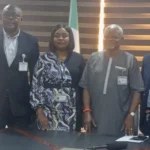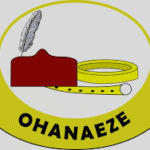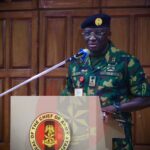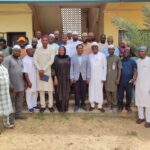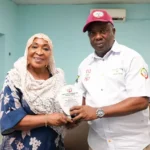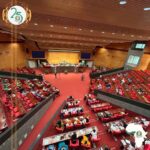By Tosin Kolade
The Federal Ministry of Water Resources and Sanitation on Wednesday underscored the pivotal role played by Civil Society Organisations (CSOs) in enhancing transparency and accountability in water and sanitation projects across the country.
This was the thrust at the Sensitisation Workshop on CSOs role in the Sustainable Urban Water Supply, Sanitation and Hygiene (SURWASH) programme in Abuja.
Dr Nicholas Madu, the Director, Water Supply and Support Services, acknowledged the crucial contributions of CSOs in promoting openness within the committee of activities related to SURWASH.
This strategic deliberation, he said underscored the government’s commitment to fostering a more open and responsible approach to vital public initiatives.
“We recognise the importance of CSOs in our initiatives, especially concerning SURWASH. We are actively engaging with them, fostering discussions for additional support.
“By the end of today’s program, we anticipate that they will be well-informed and grasp the areas where their assistance is vital for the success of the program,” Madu said.
Madu expressed optimism that when CSOs comprehend the intricacies, they can effectively inform the global public about ongoing efforts, thereby minimising misunderstandings, dissemination of half-truths, and rumor peddling.
He also extended his gratitude to the CSOs for their consistent support in advancing the ministry’s mandate and achievements.
He recognised them as valuable partners in progress, collectively working towards the attainment of common goals in the water and sanitation sector.
Mr Benson Attah, National Coordinator, Society for Water and Sanitation (NEWSAN), underscored the pivotal role of CSOs in advancing the sustainability of various programmes.
According to Attah, CSOs contribute significantly to the success of initiatives through several key functions.
“CSOs serve as invaluable sources of reliable information on programs for stakeholders, bolster community and stakeholder confidence, and act as early warning systems by identifying potential areas of conflict”.
Attah emphasised that they facilitate the proper direction of implementation, and providing essential advice to communities.
He added that they also contribute to enhancing the capacity of communities, ensuring the existence of a legal framework, and promoting good governance.
Mr Abdulhamid Gwaram, National Coordinator, SURWASH programme, said the workshop is aimed at strengthening, and streamlining the roles of the implementing agencies and CSOs to provide the necessary support services for ongoing implementation.
This, he said is to ensure that achieved results can be sustained, saying it is expected that the deliverables will be cascaded at the state levels as soon as possible.
“The workshop will provide opportunity for CSOs to expound their place in the SURWASH Programme and their efforts as strategic implementing partners.
“It is to chart a way forward for stronger partnerships between implementing entities and their state CSOs in rural, small towns and urban areas”.
The SURWASH is a 700 million dollars World Bank- funded programme, being implemented in seven states of Delta, Ekiti, Gombe, Imo, Katsina, Kaduna and Plateau.
NAN reports that SURWASH will provide six million people with basic drinking water services and 1.4 million people access to improved sanitation services.
The programme will deliver improved water, sanitation and hygiene services to 2,000 schools and health care facilities and assist 500 Communities to achieve open defecation free status. (NAN) www.nannews.ng
Edited by Ekemini Ladejobi

